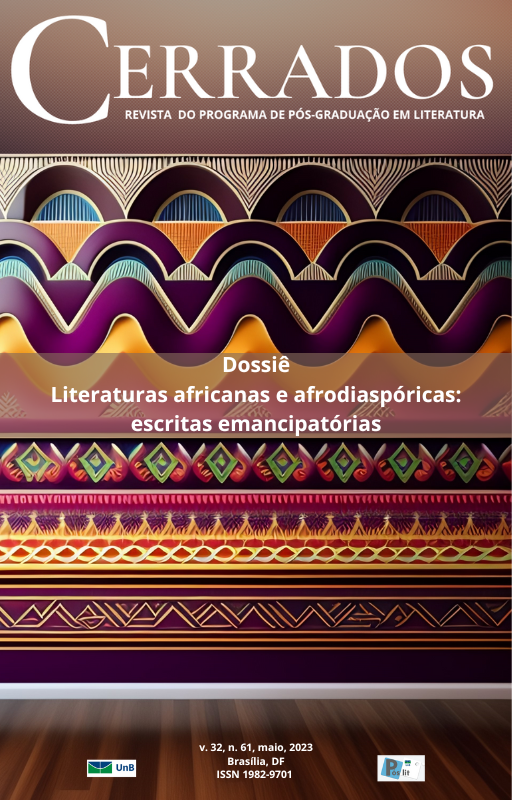Identidades emolduradas
a legitimação do imaginário colonialista em Admiring silence e No longer at ease
DOI:
https://doi.org/10.26512/cerrados.v32i61.45778Keywords:
Abdulrazak Gurnah, Chinua Achebe, identidades, literatura de língua inglesaAbstract
The following paper seeks to analyze how identities in colonial discourse are maintained through the repetition of stereotyped signs. The novels Admiring silence (1996), by Abdulrazak Gurnah, and No longer at ease (1960), by Chinua Achebe, present the various narratives that permeate the daily life of the African individual who inhabits the border between the native and the European, or between colonized and colonizer. It is in this apparently binary existence where the protagonists fall apart, losing themselves in the contextual impossibility of experiencing the cultural hybridization of the immigrant. In view of the central themes to be worked on, the theoretical basis of this study will be composed of the writings by Homi Bhabha, Stuart Hall, V. Y. Mudimbe, among others.
References
ACHEBE, C. No longer at ease. Nova York: Anchor Books, 1994.
BHABHA, H. O local da cultura. Trad. Myriam Ávila, Eliana Reis, Gláucia Gonçalves. 2. ed. Belo Horizonte: Editora UFMG, 2013.
CÉSAIRE, A. Discurso sobre o colonialismo. Trad. Claudio Willer. São Paulo: Veneta, 2020
FANON, F. Pele negra, máscaras brancas. Trad. Renato da Silveira. Salvador: EDUFBA, 2008.
FOUCAULT, M. Microfísica do poder. 11. ed. São Paulo: Paz e Terra, 2021.
GURNAH, A. Admiring silence. Londres: Bloomsbury Publising, 2021.
HALL, S. Da diáspora: identidades e mediações culturais. Liv Sovik (org). Trad. Adelaine La Guardia Resende et al. Belo Horizonte: Editora UFMG, 2003.
MUDIMBE, V. Y. A invenção da África – gnose, filosofia e a ordem do conhecimento. Trad. Ana Medeiros. Ramada: Edições Pedago; Luanda: Edições Mulemba, 2013.
Downloads
Published
Issue
Section
License
Copyright (c) 2023 Revista Cerrados

This work is licensed under a Creative Commons Attribution 4.0 International License.
Proibida a reprodução parcial ou integral desta obra, por qualquer meio eletrônico, mecânico, inclusive por processo xerográfico, sem permissão expressa do editor (Lei n. 9.610 de 19/2/1998 )



